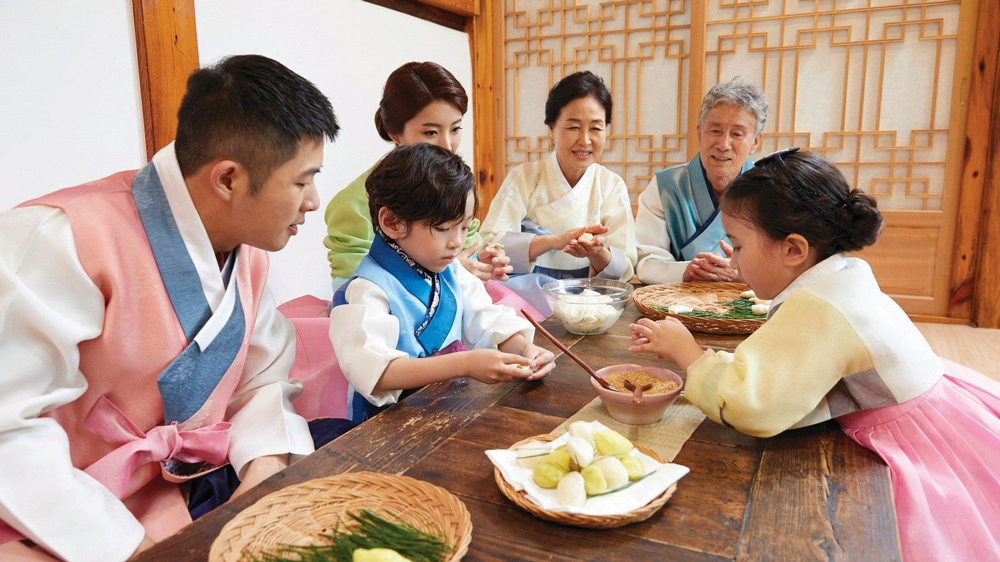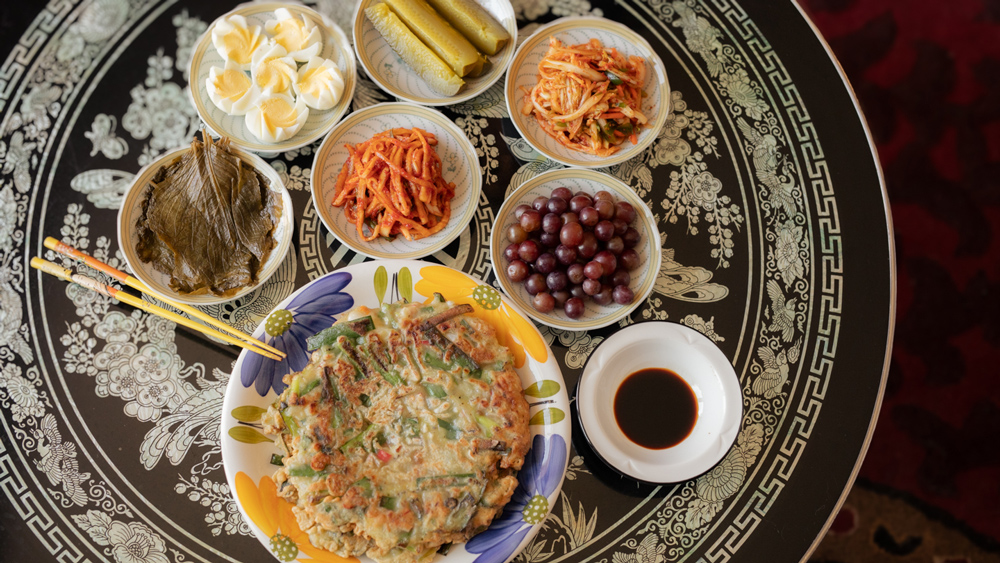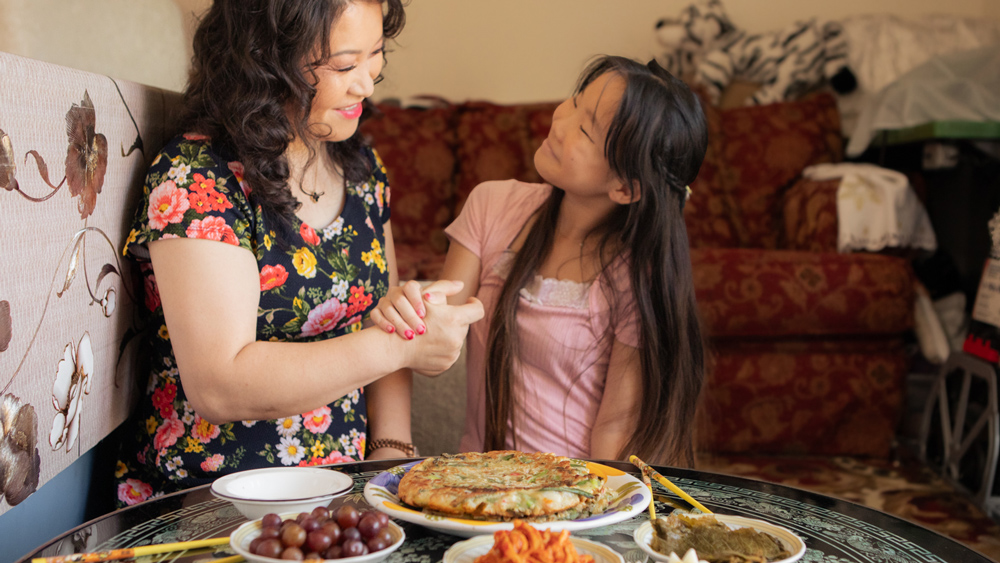How North Korean People are Changing North Korea
Sometimes this issue seems hopeless. But we believe that all North Koreans can achieve their freedom in our lifetime. Here’s why.

For decades, the North Korean people have been deprived of their basic human rights and potential. The regime has maintained control through a system of imposed isolation, relentless indoctrination, and brutal repression, creating one of the most closed societies in the world. The result is an all-encompassing enforced poverty, including material, physiological, social, informational, artistic, and spiritual deprivations.
In 2014, the United Nations Commission of Inquiry on Human Rights in North Korea concluded: “The gravity, scale and nature of these violations reveal a state that does not have any parallel in the contemporary world.”
In recent years, the pandemic has triggered another increase in isolation, hardship and repression.
Despite these tremendous challenges, the North Korean people have made significant progress toward their own freedom. In the 1990s, North Korea’s socialist economy collapsed, triggering a devastating famine and leaving the people to fend for themselves. Bottom-up market activity is changing North Korea and forcing the gradual opening up of North Korean society.
> The History of North Korea in under 3 minutes
Marketization and Emerging Entrepreneurs
Once the people realized they could no longer rely on the government, they abandoned their defunct work units and turned to private market activities. From selling home cooked meals to running extensive trade businesses, North Koreans have become incredibly creative and resourceful to survive. The markets central to these activities are known as the “Jangmadang,” and to this day, North Korean refugees regularly report that life would be impossible without them.
> The Jangmadang Generation

The famine forced people at all levels of society to find alternate ways to survive. Many government officials seized opportunities for camouflaged capitalism to enrich themselves personally. Even security officials accommodated the markets, accepting bribes to turn the other way and allow access to the Chinese border for trade. This corrupt state apparatus has further degraded the integrity and power of North Korean leaders.
Foreign Media & Info
The growing market economy has also created opportunities for foreign media and information to proliferate in North Korea.
First, the movement of people has significantly increased since the 1990s. Hundreds of thousands of North Koreans have now been outside the country for legal or illegal work and trade, in addition to refugees who were caught in China and forcibly repatriated. Observations from overseas are commonly shared through word of mouth and quickly spread through communities.
Additionally, new information technologies are increasingly available through the markets, making it easier to share and consume illegal foreign media. USB thumb-drives, SD and MicroSD cards, mobile phones, laptops and small portable media players are often loaded with foreign films, TV shows, and music that offer a glimpse of life outside.
> How Kpop is Challenging the Regime
Individual Agency & Independence
Since the collapse of the 1990s, the relationship between the North Korean people and the regime has been fundamentally changed. The people’s increasing economic autonomy has challenged the government’s centralized power and systems. Simultaneously, access to foreign media and awareness of life outside the country has eroded the legitimacy of the regime’s propaganda. The North Korean people have found opportunities to explore their potential, empowered to think and act independently of the regime.

North Korean Defectors
As North Koreans gain both physical and psychological independence from the regime, some will risk their lives to escape and experience freedom. Since crossing the heavily fortified demilitarized zone directly to South Korea is nearly impossible, many refugees go north into China while escaping North Korea.
North Korean defectors who successfully resettle become some of the most effective agents of change on this issue. Many maintain contact with their home communities through broker networks and smuggled Chinese phones. They send money back to their families along with first-hand accounts of the outside world, accelerating both market activity and the flow of information.

From the outside, North Korean refugees have the opportunity to share their stories on the international stage. Their personal accounts challenge the regime’s narrative of an unchanging and monolithic North Korea, instead highlighting the humanity and dynamism of the people. As they explore their potential in the free world, North Korean refugees increase the force of change through both internal and external influence.
> How A North Korean Defector Sends Money Back Home
Change from the Bottom-Up
While the situation in North Korea is changing, the government’s mastery in maintaining social control should not be underestimated. The regime’s response has ranged from crackdowns to tacit acceptance and reform. North Korean leader Kim Jong-un recognizes the trade-off between change and maintaining control, and has allowed limited marketization while cracking down on information flows.

Ultimately, however, the sources of change can only be managed, not eliminated. As the North Korean people learn more about their relative poverty and the reasons for it, pressure will build on the government for economic reform. The less the North Korean people fear the outside world, the less effective the government’s threat narrative will be, and the less justified their massive investment into nuclear weapons will seem.
The regime will either need to adapt to change and allow opening of the country, or ultimately face the consequences of increasingly dissatisfied people.
It is important to note that progress in North Korea is a fluctuating process, as it is anywhere else in the world. During the pandemic, there has been increased isolation, retrenchment, and a limited outflow of people. The situation at hand is dire, but we can still be optimistic about long-term outcomes and an overall upward trend towards progress.
Liberty in North Korea
Our staff from North Korea, South Korea, and around the world, with our diverse movement of supporters and volunteers, is committed to bringing freedom forward for all North Korean people.

We’re engaged at multiple touchpoints of change:
- Helping North Korean refugees reach safety
- Identifying and empowering North Korean agents of change
- Mobilizing international support for the North Korean people
- Working with North Korean defectors to develop content and technologies that increase the people’s access to information
Our theory of change recognizes that change in North Korea has already started, and it is being driven by the people. One day, all North Koreans will gain their freedom and take full authorship over their lives. When that day arrives, we will know that we were a part of helping North Koreans in this incredible story of resilience and human progress against all odds.
Chuseok for North Koreans | No Way Home for the Holidays
Autumn is a significant season for many people and cultures around the world. It’s a period of transition and reflection, gratitude for the days gone by, and celebration of the harvest.
In both North and South Korea, this time of year is celebrated with Chuseok, or the mid-autumn festival. Also known as “Korean Thanksgiving,” it’s a major holiday that predates the division of the peninsula. Chuseok is observed on the 15th day of the 8th month of the lunar calendar, when the harvest moon shines brightest. Traditionally, people return to their ancestral hometowns to gather with family, share a variety of delicious foods, and pay respects to their ancestors.
But for North Korean refugees, there is no going back. Holidays like Chuseok can be a bittersweet time, one of both gratitude for a life in freedom and grief over being unable to celebrate with family still inside North Korea.
“The first Chuseok in the US felt very empty and lonely. It was just me and my two-year-old daughter, Mia, back then. It didn’t feel like a holiday. I had multiple emotions at the same time. Loneliness, emptiness… there were so many feelings that I couldn’t even put into words.“
– Holly, escaped North Korea in 2013
Chuseok celebrations have evolved to look a little different in North versus South Korea, and even in countries like the US where the Korean diaspora have resettled.

Chuseok Traditions in South Korea
In South Korea, Chuseok is considered the largest and most important holiday of the year. It’s celebrated over three days, during which a “national migration” takes place as people all over the country travel to their hometowns or to go sightseeing. Tickets for planes, trains, and buses are sold out months in advance, and freeways are packed with bumper-to-bumper traffic during the holiday period.
On the morning of Chuseok, families hold a memorial service for their ancestors at home, known as charye (차례). A table of food is prepared as an offering, typically featuring rice cakes, fresh fruits and vegetables, meat dishes, and the favorite meals of deceased loved ones. Families will also visit ancestral gravesites, a custom known as seongmyo (성묘), to pay their respects and tend to the graves.

From the ancestral table to large family meals, food is a central part of Chuseok celebrations. The defining dish of this holiday is seongpyeon (송편), a chewy, sweet, and nutty half-moon shaped rice cake steamed in fresh pine needles. It’s traditionally made with rice from the year’s harvest, finely milled into flour. Preparing seongpyon becomes a family activity as each piece is shaped by hand and filled with red bean paste, toasted sesame seeds, or chestnuts.
Other holiday foods include pajeon(파전), a crispy, savory pancake made with green onions; galbijjim (갈비찜), sweet and savory braised short ribs; and japchae(잡채), glass noodles stir-fried with meat and vegetables.

How Chuseok is Celebrated in North Korea
In North Korea, Chuseok is just a one-day celebration. While it is considered a key traditional holiday, its importance has been minimized relative to national holidays like the birthdays of Kim Il-sung and Kim Jong-il, and the anniversary of the founding of the Worker’s Party.
On both traditional and national holidays, North Koreans are urged to visit the statues of Kim family leaders or the Kumsan Palace of the Sun in Pyongyang, where the bodies of Kim Il-sung and Kim Jong-il lie.
It is much less common for widespread travel to take place during Chuseok due to severe travel restrictions and poor transportation infrastructure. However, these constraints have also made it so that generations of North Koreans remain in close proximity to their hometowns and relatives. For Chuseok, people gather with their nearby family members. Just like in South Korea, they’ll prepare special foods as offerings for charye, and then visit ancestral grave sites to pay respects.
After ancestral rites, festivities become a community affair with traditional food and folk games shared amongst family, friends, and neighbors. Songpyeon is also a holiday staple, but the North Korean version is made with a minced meat and vegetable filling, and are twice as big as South Korean ones. Common folk games are yutnori (윷놀이), a board game, and ssireum (씨름), or Korean wrestling.
Holly & Mia: A Legacy of Freedom
It’s been over a decade since Holly left her hometown in North Korea. But whenever she makes pajeon (파전), it takes her right back to her childhood—sitting by the frying pan and watching her mom cook, eagerly awaiting a taste. “Pa”(파) means green onion and “jeon”(전) refers to foods that have been pan-fried or battered. There are many varieties of “jeon,” made with everything from potatoes to zucchini, seafood, kimchi, and more.
Holly saw her mom cook this dish countless times in North Korea. It was an inexpensive, everyday staple, but also an essential part of the holidays. Every year for Chuseok, the mouthwatering aroma of oil and batter would draw everyone to the kitchen, where a colorful assortment of jeon was being prepared.
Holly now lives halfway across the world from North Korea, but every year during Chuseok, she sets out an offering table for charye. For hours, she prepares foods like pajeon with great care, remembering and honoring her parents and loved ones, who she can’t be with for the holidays.

In 2016, Holly reached freedom through LiNK’s rescue networks with one-year-old Mia in her arms.
Mia is now at an age where she’s able to understand some of the things her mother went through. Holly has begun to open up more about her life in North Korea, and does her best to keep their small family connected to their Korean heritage. She takes Mia to Korean language school on Sundays, and makes an effort to celebrate cultural holidays, like Chuseok. What can’t be put into words, Holly communicates through food—their dinner table is always full of delicious Korean cooking.
In 2024, Holly received her US citizenship, nine years after her resettlement!
"When I obtained my US citizenship, it felt like my escape journey was finally complete. I cried and felt so grateful to the US for giving me a new life. My greatest happiness is seeing Mia have a childhood free of the painful hardships that defined mine.”

These days, Chuseok has become a lively gathering with the many friends and neighbors they’ve met over the years! Holly gathers with other Koreans in the community, and they go all-out preparing delicious seongpyeon and pajeon. She takes great pride in wearing traditional hanboks with Mia, and explaining each dish when guests arrive. The festivities always continue long after dinner, with Korean games like jegichagi, a version of hacky sack, and yutnori, a board game.
Living in the US, Holly and Mia have been introduced to new traditions too. Just a month after Chuseok, their community gathers again to celebrate Thanksgiving with turkey and pumpkin pie, in true American fashion.

Holly still has hope that in her lifetime, she’ll be able to celebrate Chuseok with all her family and bring Mia to visit her hometown in North Korea.
We’re working towards the day when families don’t have to be separated. To date, LiNK has rescued almost 1400 North Korean refugees and their children, reuniting over 500 people with their families in freedom. As we’re helping North Koreans, like Holly, build new lives, we’re also leading initiatives to increase change inside North Korea, through advocacy, information access, and more.
Become a monthly donor and create a long-lasting legacy of freedom. Your support will rescue North Korean refugees waiting for their chance to escape right now, and fuel work that is increasing change and opening inside North Korea.




